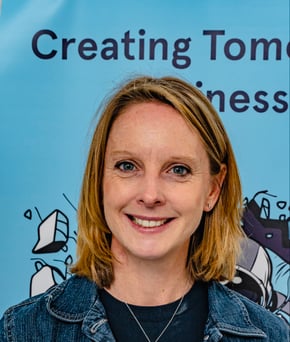I had the privilege of spending the day at Marty Cagan’s Transformed leadership workshop yesterday, followed by dinner with a dozen product coaches from Australia and New Zealand. I've summarized my takeaways into areas where my thinking and the Propel approach converge and diverge with what I heard yesterday.
We Converge
- Starting with Assessment: Every transformation must begin with an assessment since every organization has a different starting point. You need to meet the organisation where it is.
- Principles of Transformation: There is no single right way, but the principles of transformation are consistent.
- Choosing Battles: Sometimes, it’s a lost cause, like when the CEO is incorrigible (I enjoyed this word choice).
- Focused Strategy: A successful product strategy requires focus on 2 or 3 key things.
- Leaders' Responsibility: Leaders are responsible for strategy and identifying which problems to solve.
- Engineers’ Role: Engineers in empowered product teams are crucial to successful change as they often have the best ideas.
- Instrumentation and Monitoring: These are non-negotiable as they ensure quality while accelerating velocity.
- Product Manager’s Role: In empowered product teams, product managers own and are accountable for value and viability, unlike in feature teams.
- Value of Design: Designers think about mental models in ways that complement the team.
- Empowered Teams: Empowered teams require better, not less, management.
- Outcome Proximity: Bring outcomes close to the team. Revenue is too high-level, but reducing onboarding time is tangible.
- Role Overhead: If you have a heap of support roles you may end up having more watchers than doers.
We Diverge
- All Process is Bad:
- Counterview: Managing and embedding change is a process. It helps to co-design an operating rhythm (aka process), communication methods and cadence.
- Counterview: The double diamond approach to identifying and narrowing problems and solution spaces is a valuable way to embed design thinking and customer centricity. Frameworks and tools are useful for teaching techniques.
- Problem vs. Solution Discovery:
- Counterview: Solving the wrong problem is a waste. User interviews to deeply understand the problem are as important as discovering the solution.
- Governance is a Dirty Word:
- Counterview: Governance needs to be right-sized. In heavily regulated and high-risk environments, checks and balances matter. They reduce risk and build trust.
Where I'm Still On the Fence
- Product Discovery Through Feasibility Prototyping:
- Counterview: Prototyping doesn’t always require working software. Tools like Figma can validate value and viability before further investment. For existing products, estimating based on experience and previous developments can be effective for high-integrity commitments.
- Product Manager’s Scope: They are expected to be experts in understanding the users and customers, proficient in analysing data, knowledgeable about the market, business models, go-to-market strategies, and financial metrics, including navigating legal and compliance requirements. They must be informed about industry trends, competitor strategies, and technological advancements while deeply understanding the product, including its features, technology stack, and user experience.
The can do all of this because there is less time spent on delivery and project managment in the product model.- Counterview: The above scope is true but can be unrealistic for a single person to cover in heavily regulated products.
Overall, it was a fantastic day. Lots to think about and truly inspiring to hear of the examples where the product operating model has delivered remarkable results.

Amy Johnson | Chief Product Officer Propel
A product leader, passionate about empowering teams and fostering inclusion. Multi industry experience, now leading the product team at Propel, where we partner with you to accelerate your product development and achieve product market fit faster.
